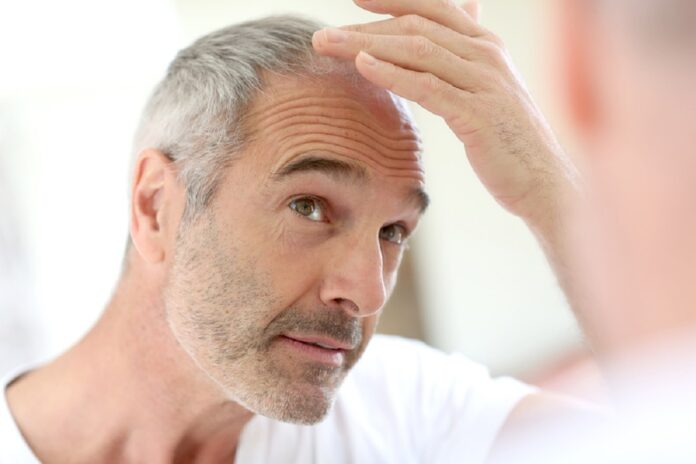
The cause of crippling performance anxiety, depression and insecurity – male hair loss is so much more than just an issue of ego and, worst of all, it can happen at any age.
Flick through any high-fashion magazine and you’ll see image after image of muscular men with lashings of shiny hair, or perfectly shaped heads that have been willingly shaved; There’s no in-between. Nowhere do you see a twenty-something male with a thinning top or prominent bald spot, leading those that do have them to feel unrepresented and, ultimately, ashamed.
More than embarrassment
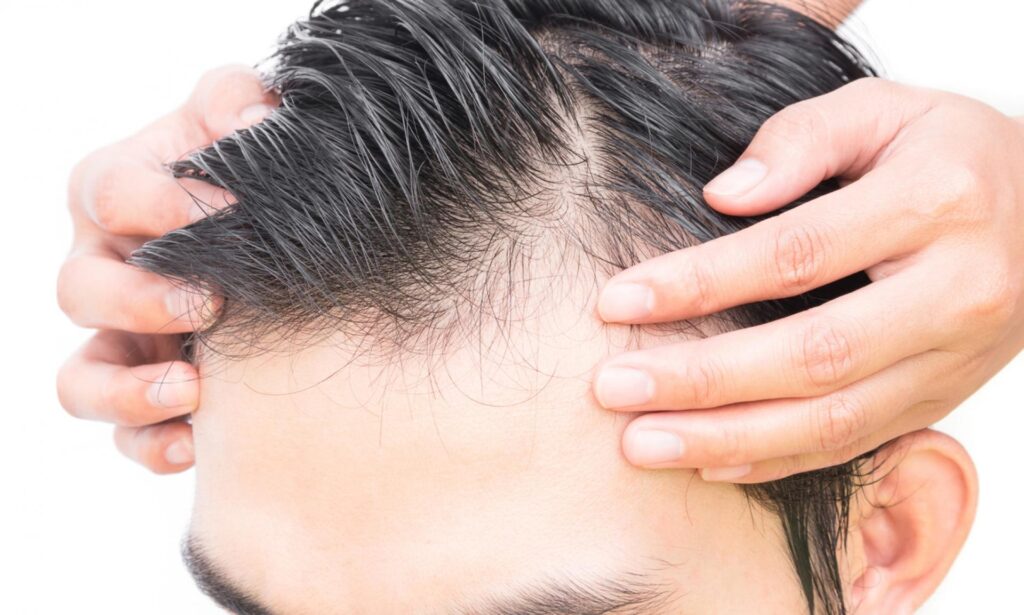
Feeling self-conscious about thinning or baldness runs far deeper than just surface-level egotism. Think about the first things you notice when you meet a new person and you’ll soon realize that as you look at their face, your eyes naturally wander up to their hair as well. For some, their hair is their defining characteristic, hence the term ‘crowning glory’, but if there is little or nothing to show, imagine the impact on an individual’s mental health. It’s even worse when a full head of hair has been enjoyed before falling out.
Fear of getting older
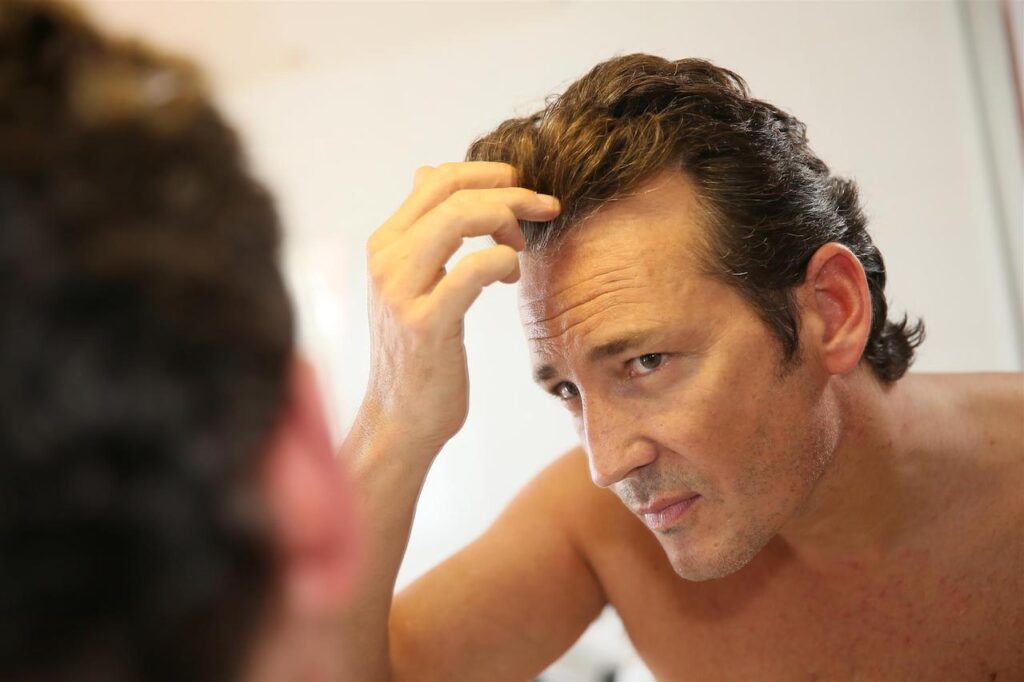
Of course, one of the major worries about thinning hair is the fact that it is a visual reminder that you are getting older. While ageing is inevitable, balding earlier on life can be a worrying ordeal to go through. It will often be the first indicator to some men that they are, indeed, ageing and that they are not going to stay young forever. The fear that you are not quite where you want to be in your life can be an anxiety-ridden thought, of which your hairline has made you painfully aware.
Plus, the fear of the unknown is also a very real prospect. You simply don’t know how much you will lose and when that ageing process will take place – or when it will end. While looking at older family members and their hairline can be a good measure for how much hair you will lose, it is by no means a hard and fast indicator.
Stress
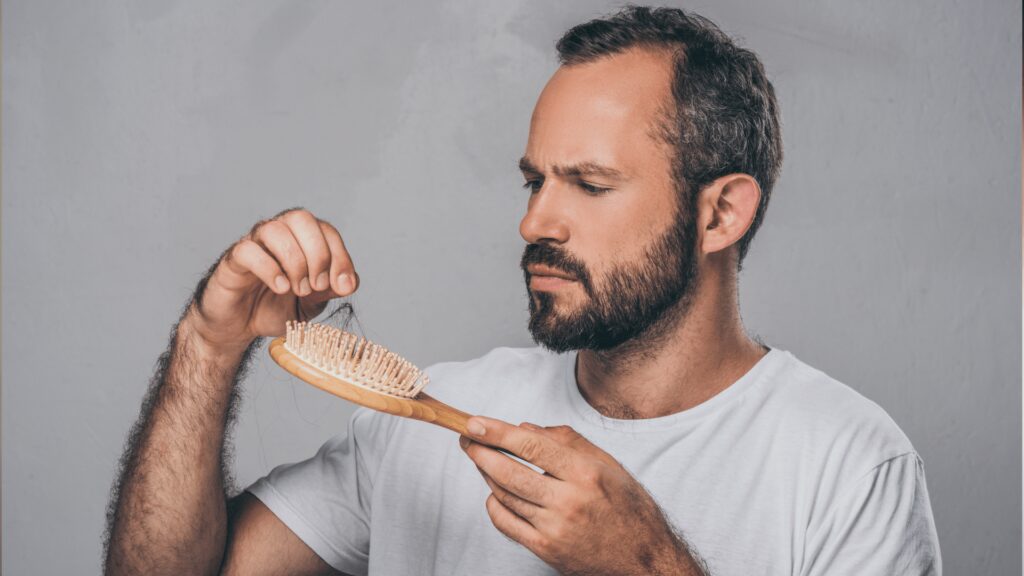
The problem with losing your hair is that it can sometimes become a self-fulfilling prophecy. So often, hair loss is exacerbated by stress which can quicken the process. However, losing hair in itself can be a stressful process, thus making it that much worse.
Given that so many of us are leading ever more demanding lives thanks to pressures from our careers and home lives, stress is sadly something that we will all need to live with. Therefore, to minimise hair loss, it is important to try to learn to cope with stress in the most constructive way possible.
The link to virility

An Achilles heel to most men, the idea of baldness being linked to a lack of virility is crushing. Regardless of the fact that it isn’t true (Bruce Willis has demonstrably managed to father plenty of children), hair loss as a sign of reduced sexual potency can have a serious and lasting impact on relationships.
What starts as diminishing self-confidence strays into an unwillingness to attend social occasions, and finally isolation. As relationships, both platonic and professional, fall by the wayside, the idea of pursuing romantic attachments also seems unfavourable. Bald and alone is hardly what anyone wants for themselves, but it can all be avoided by taking a proactive approach to loss, as Kaan Aksoy from GetHair explains.
How to tackle hair loss
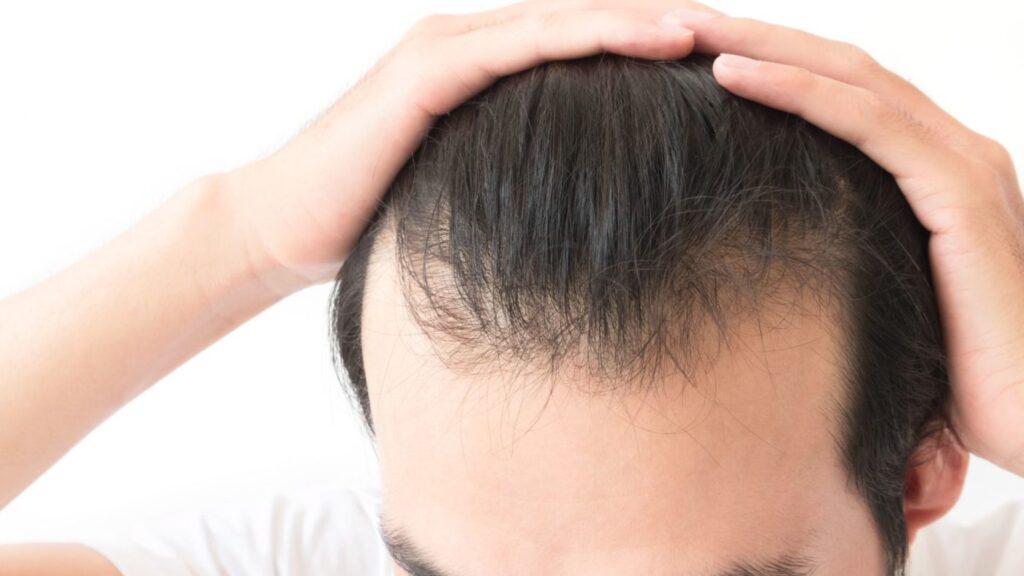
Hereditary hair loss is the most common form of baldness, with permanent loss of follicles leaving patches of bare scalp. It’s hard to know if you will go bald and while many potential remedies have been touted over the years, the most effective way to reverse the effects of hair loss is to undergo a hair transplant.
Technology has progressed significantly since the first hair grafts. Gone are the days when unnatural hairlines and noticeable scarring had to be endured, as now, follicular unit extraction (FUE) methodologies have reduced the pain, recovery time and costs associated with tackling baldness. Former techniques were easy to spot, even after the patient had fully recovered; there were limitations in place as well, with shorter hairstyles not suitable for disguising scarring.
The FUE technique sees only healthy follicles being harvested from areas where the hair is naturally denser, before being transplanted to the sparse sections. With no stitches to heal at the back of the head, there is little to give away how a full head of hair has been achieved, but it is worth noting that the full results of this procedure still take time to see.
Aksoy reiterates that patience is a virtue, as the transplanted follicles will naturally fall out, a few weeks after the procedure, before new will begin to organically appear around six months into recovery. For the full impact, you’ll need to wait between 12-24 months, but the results are worth waiting for.
No synthetics, no medications and no miracle cures; just effective cosmetic surgery, carried out by reputable hands. That’s the secret to a hairline that anyone can be proud of.
Hair loss – key takeaways

Losing your hair is sadly a fact of life when you age. Given that we are all living for longer and longer, there are more of us suffering from going bald.
However, modern-day stresses on our lives can make hair loss worse too. For example, working in a pressurised environment can cause so much stress that it manifests itself through a thinning hairline, not to mention high blood pressure and many other physical symptoms. That being said, hair loss is also hereditary. Some of us are simply predestined to lose our hair earlier than others – it’s down to our genetics.
With advances in medicine and cosmetic surgery, there is no need to continue living with a hairline that you are embarrassed of. If you are worried about your hair, do not suffer in silence. Approach a medical professional about it who can tackle your worries with the best tools that modern science has to offer.














